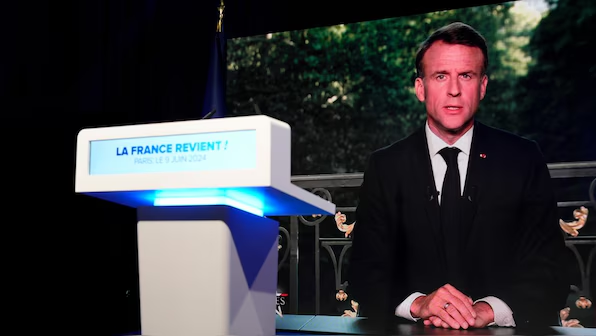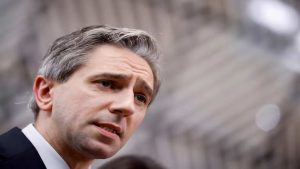Will the Paris Olympics suffer from France’s early elections?
Will the Paris Olympics suffer from France’s early elections?
Emmanuel Macron, the president of France, called for early legislative elections and dissolved the National Assembly after his party was decisively defeated in Sunday’s European Parliament elections.
Macron said, “I have chosen to return to you the power to choose our parliamentary future through the ballot box,” in a speech to the country from the presidential residence at Elysee. That’s why I’m calling the National Assembly to order. Less than three weeks before the start of the Paris Olympics on July 26, there will be two rounds of elections on June 30 and July 7.

Following the victory of Marine Le Pen’s far-right National Rally (RN) party over Macron’s pro-European centrists, the decision was made.
What is the IOC‘s response?
President of the International Olympic Committee (IOC) Thomas Bach and the Paris 2024 organizers promised that Olympic preparations would not be impacted by the current political unrest. “France is used to holding elections, they will do it one more time, there will be a new government and everyone will support the Olympics,” Bach said at a pre-event in Paris.

“I have no indication whatsoever that this unity will break now only a couple of days before the Games open,” he said, highlighting the fact that French political leaders are still united in their support of the Games.
What have the Paris officials said?
However, Paris Mayor Anne Hidalgo voiced her worries, calling Macron’s move “extremely unsettling.” “Like many others, I was shocked to hear the president decide to do a dissolution (of parliament),” the woman continued.
After the poor results of the European Parliament election, Hidalgo noted that the president’s move “could not continue as before,” but he criticized the timing, labeling it “one more blow.”

Tony Estanguet, the head of Paris 2024, gave assurances, saying that his staff is “more determined than ever” to make sure the Games are a success. “We understood how to work with the public actors and there have been about ten elections since we launched the candidacy for the Olympics,” he said.
After seven years of planning, the Paris 2024 organizers said in a statement that they were ready to host the Games. They stated, “With just a few weeks to go before the Games, we have entered a highly operational phase.” The important choices have all been made in the distant past.
What about worries regarding security?
The administration in place for the Olympics has been under scrutiny due to the approaching elections, particularly as important ministries like the interior and transportation are vital to the security and planning of the event. Thousands of security personnel will be mobilized for the two-stage poll, further taxing available resources.
“Nothing will change between now and 8 July in the preparations of the Games and afterwards it will be absolutely too late to change anything,” University of Lausanne Olympics specialist Jean-Loup Chappelet told AFP, downplaying the possible impact of cabinet changes.
David Roizen of the Jean Jaures Foundation, however, issued a warning, stating that political unrest may cause attention to turn from the benefits of the Games to security issues. “It could potentially terminate the positive dynamic, wherein individuals solely discuss the Olympics from a security standpoint,” he stated to AFP.
With an unprecedented outdoor ceremony on the Seine River, the organizers of the Paris Olympics have promised a “iconic” Games set against the historic backdrop of Paris. However, concerns about the opening ceremony’s security plans, the Seine’s cleanliness for open-water swimming sports, and possible trade union strike threats still exist.
In order to settle political disputes, such as intractable disagreements between the legislative and executive branches, the president of France may dissolve the National Assembly pursuant to Article 12 of the constitution. In accordance with this clause, the elections will take place 20 to 40 days after the assembly is dissolved, with the first round taking place on June 30 and the second round on July 7. In light of Paris’s preparations to host the Olympic Games at the end of July.










